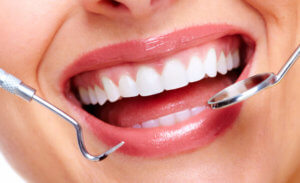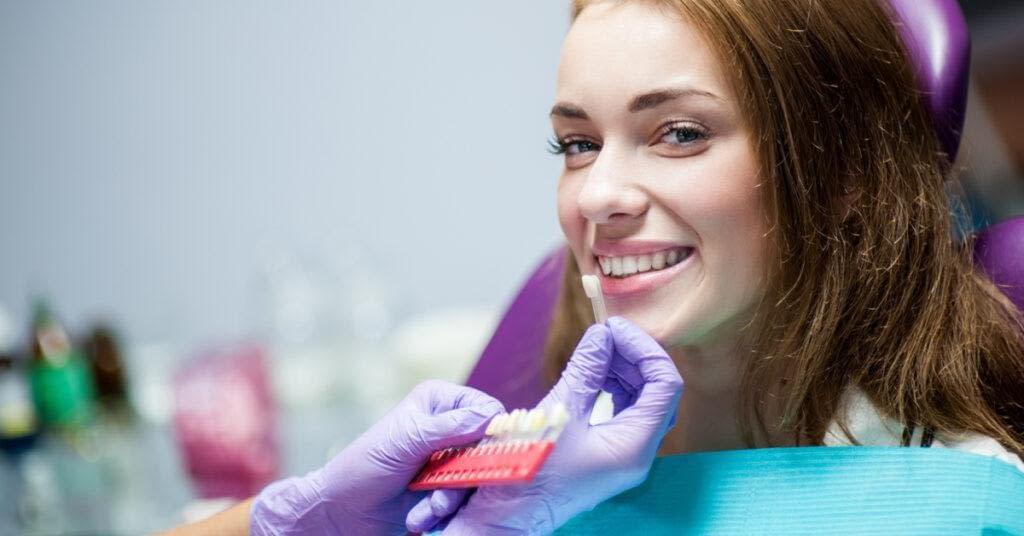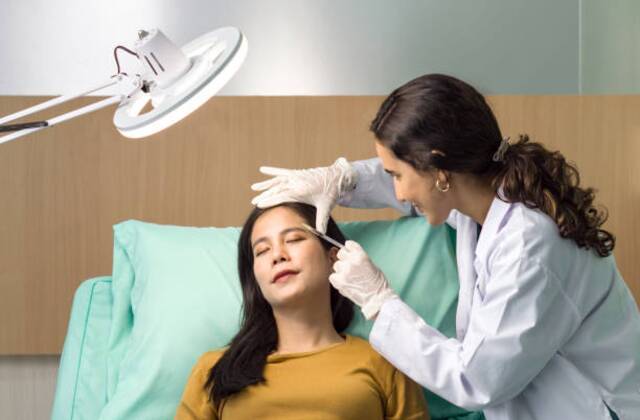Health
Why General Dentistry Provides Both Prevention And Restoration Together

You deserve a healthy and confident smile. General dentistry is your partner in achieving that. It offers both prevention and restoration. Preventing problems before they start is key. With regular check-ups, cleanings, and guidance, you protect your teeth and gums. But sometimes, problems happen despite your best efforts. Here’s where restoration comes in. It repairs damage and restores function. Treatments like fillings, crowns, and even implant restoration Toronto can rebuild your smile. You don’t need to go to multiple specialists. General dentistry combines prevention and restoration in one place. This approach saves you time and reduces stress. You gain peace of mind knowing your dental health is in good hands. Whether you need a routine cleaning or a complex restoration, general dentistry covers both. It ensures your smile stays strong and healthy. Understanding this helps you make informed and confident choices about your dental care.
Prevention: The Foundation of Oral Health
Prevention starts with basic habits. Brushing twice a day and flossing protect your teeth. Regular visits to your dentist ensure that any early signs of decay or gum disease are caught quickly. These visits are crucial. According to the Centers for Disease Control and Prevention (CDC), regular dental check-ups can identify potential problems that may require more extensive treatment if left unchecked.
Here’s what regular preventive care includes:
- Professional cleanings
- Examinations for cavities and gum health
- X-rays to detect hidden issues
These steps help keep your teeth and gums in good shape. Effective prevention can save you from pain and the need for complex procedures.
Restoration: Repairing and Rebuilding
Sometimes damage occurs despite the best prevention. Life happens. Accidents, injuries, or unexpected decay can lead to dental damage. This is where restorative dentistry becomes important. The goal is to bring your mouth back to health. Restorative treatments fix and replace damaged teeth.
- Fillings address cavities.
- Crowns strengthen weakened teeth.
- Implant restorations replace missing teeth.
These treatments restore function and appearance. Restorative care ensures you can eat, speak, and smile without discomfort.
The Combined Approach
General dentistry doesn’t separate prevention and restoration. It combines the two, offering you comprehensive care. This integrated approach is efficient and effective. You don’t need to manage multiple appointments with different specialists. Your dentist knows your dental history. This familiarity ensures personalized care. It’s reassuring to know your dentist has a complete view of your oral health.
Benefits of Combining Prevention and Restoration
This approach provides several benefits:
- Convenience: One place for all your dental needs.
- Consistency: Your dentist understands your progress.
- Confidence: Trust in a provider who knows your dental journey.
Incorporating both preventive and restorative care offers a seamless experience. It’s practical and stress-free.
Comparing Preventive and Restorative Care
| Aspect | Preventive Care | Restorative Care |
|---|---|---|
| Purpose | To maintain oral health and prevent issues | To repair and restore function and appearance |
| Common Procedures | Cleanings, exams, X-rays | Fillings, crowns, implants |
| Outcome | Healthy, problem-free teeth and gums | Restored function and aesthetics |
Taking Charge of Your Dental Health
Being proactive about your dental health is empowering. With combined prevention and restoration, you have control. You can prevent problems and know help is available if they arise. Knowing your dentist can address both aspects offers peace of mind. It ensures your dental journey is smooth, from start to finish.
The next step is simple. Schedule regular check-ups. Discuss any concerns with your dentist. Together, you can create a plan that suits your needs. By engaging with your dental care actively, you secure a healthier future for your smile. Understanding this approach means you have one less thing to worry about. Your dental health, both preventive and restorative, is in capable hands.
Health
3 Benefits Of Combining Family And Cosmetic Dentistry In One Office

You want care that fits your whole life, not separate appointments in scattered offices. When one trusted team handles both your family’s checkups and your smile upgrades, your care becomes simple, steady, and personal. A combined family and cosmetic practice knows your history, your habits, and your goals. That means safer treatment plans, fewer surprises, and faster results that match your daily needs. It also means your child’s first cleaning, your partner’s crown, and your own teeth whitening San Diego can all happen under one roof. This unity lowers stress. It cuts confusion. It protects your time and your budget. You spend less effort explaining your story and more energy living your life. The next sections share three clear benefits you can expect when you choose an office that cares for both your family’s health and your smile’s appearance
Benefit 1: Stronger Prevention And Safer Cosmetic Work
Your mouth is one system. Family and cosmetic care work best when they support each other. When one team handles both, your cosmetic choices grow from a strong health base.
First, regular checkups protect you from hidden trouble. Cleanings, exams, and X-rays help catch decay and gum disease early. The Centers for Disease Control and Prevention explains that untreated cavities and gum disease can cause pain, missed school, and missed work. When your dentist knows your full history, cosmetic care can move forward only when your teeth and gums are stable.
Second, cosmetic plans become safer. Whitening, bonding, veneers, and crowns all place stress on teeth. If you have weak enamel, clenching, or dry mouth from medicine, your dentist can adjust the plan. You avoid rushed choices that ignore long-term health.
Third, you gain one clear roadmap. Your dentist can set a simple order. Control disease. Restore strength. Then improve the color and shape. This step-by-step path lowers risk and protects your results.
Separate Offices Compared With One Combined Office
| Care Feature | Separate Family Office And Cosmetic Office | One Combined Family And Cosmetic Office
|
|---|---|---|
| Health history | Split charts and repeated forms | One record for all visits |
| Treatment planning | Cosmetic work may ignore health issues | Cosmetic plan built on current health |
| Medication and allergy safety | Higher chance of missed details | Team knows your full list |
| Follow up care | Confusing instructions from two teams | One set of clear directions |
| Long term results | Higher risk of failed work | Better chance of stable results |
Benefit 2: Less Stress For Your Family Schedule And Budget
Life already pulls you in many directions. School, work, and care for older parents all compete for time. Splitting your dental care across offices adds more strain. One combined office helps you take back control.
First, you save time. Many combined practices offer family block visits. You can schedule your cleaning, your child’s sealants, and your partner’s filling in one visit. You cut travel time and missed work. You also reduce the days your child misses class. The National Institute of Dental and Craniofacial Research links poor oral health to more school absences. Keeping care simple helps you stay ahead of problems that can keep your child home.
Second, you protect your budget. One office can group needed care into clear phases. You gain a simple cost picture. You can plan which services your insurance may help cover and which cosmetic steps you may pay for over time. You avoid surprise bills from a second office that did not see your full chart.
Third, you lower emotional strain. New offices mean new forms, new staff, and new routines. For a child or an anxious adult, that can cause fear. When you keep care in one place, the waiting room feels familiar. The faces feel known. Trust grows. That trust makes numbing, fillings, and cosmetic visits easier to handle.
Benefit 3: One Trusted Team For Every Stage Of Life
Your oral needs change with age. A child needs cleanings, fluoride, and sealants. A teen may need braces, wisdom tooth checks, or whitening for stained teeth. An adult may need crowns, implants, or cosmetic repair after years of wear.
One combined office can walk with you through each stage.
- Childhood. Gentle cleanings, exam games, and simple words help your child form calm memories. Early visits shape habits for life.
- Teen years. Sports guards, orthodontic checks, and color questions sit on the same chart. Your dentist can talk with your teen about soda, tobacco, and mouth piercings without judgment.
- Adult years. Clenching, stress, and old fillings can crack teeth. Your dentist can fix the function, then improve the look with whitening, bonding, or veneers when you are ready.
- Older age. Dry mouth, medicines, and health issues raise risk. Combined care helps keep chewing strong while respecting medical limits.
This steady link lets your dentist see patterns across time. Grinding, sugar habits, or gum flare-ups do not hide behind new patient forms. The team can adjust your care plan before small issues grow into emergencies. You receive simple, honest guidance instead of mixed messages from separate offices.
How To Choose A Combined Family And Cosmetic Office
When you search for one office, use three clear questions.
- Does the office welcome all ages? Look for proof that they see young children, teens, adults, and older adults.
- Do they offer both routine and cosmetic services? Cleanings, fillings, crowns, whitening, and other cosmetic options should all appear in their list of services.
- Do they explain treatment in plain words? Staff should answer questions about safety, cost, and timing without pressure.
You can also ask how they share records inside the office. Strong record systems support safe care. Ask how they plan treatment for someone who needs both health repair and cosmetic changes. The answer should sound clear and patient-centered.
When you choose one combined family and cosmetic office, you give yourself more than a brighter smile. You gain a calm routine, a safer path, and a team that knows your story. That unity protects your health, your time, and your sense of control.
Health
Why Hiring A Tax Accountant Reduces Stress During Filing Season

Filing season often brings fear, pressure, and confusion. You face forms, deadlines, and letters from IRS staff that feel cold and harsh. You worry about missing something. You worry about paying more than you should. You worry about an audit. That constant tension pulls at your sleep, your work, and your patience with people you love. A tax accountant cuts through that strain. You gain a guide who knows the rules, tracks the dates, and catches mistakes before they spread. You hand over receipts and records. Then you receive clear answers and a plan. This gives you control again. It also gives you time back. When you use tax resolution services in Naperville and Bolingbrook, you do not stand alone in front of the IRS. You stand with someone who understands the system and protects your interests with calm, steady focus.
How Filing Season Stress Hurts Daily Life
Tax worries do not stay on your desk. They follow you home. You may snap at your kids. You may lose focus at work. You may lie awake and replay numbers in your head. That kind of strain can build into shame and anger.
- You fear a surprise bill you cannot pay.
- You fear a letter you do not understand.
- You fear making one small mistake that grows into a crisis.
According to the IRS Tax Time Guide, many people rush near the deadline and miss credits or file with errors. That rush feeds stress. Then stress feeds more mistakes. A tax accountant helps you break that loop.
What A Tax Accountant Actually Does For You
A tax accountant does more than fill in boxes. The work falls into three simple parts.
- Prepare your return using current tax law.
- Protect you by spotting risks and fixing errors.
- Plan for next year so you are not caught off guard.
The accountant reviews your income, spending, and family needs. Then the accountant checks which credits apply to you. These include credits for children, education, and retirement. The IRS credits and deductions list shows how many choices exist. It is hard to track these on your own. A missed credit means lost money. A wrong claim can trigger notice letters.
Why Professional Support Reduces Stress
Stress often comes from three things. You lack clear information. You lack time. You feel alone. A tax accountant answers each problem in a direct way.
- You get plain language answers to your questions.
- You spend less time on forms and record sorting.
- You gain someone who speaks to the IRS for you when needed.
Instead of guessing, you ask. Instead of hoping, you check. Instead of fearing every envelope, you know someone can read it and respond. That shift gives you peace and a sense of safety.
Comparing Filing By Yourself And Hiring A Tax Accountant
| Factor | Doing Taxes Yourself | Hiring A Tax Accountant
|
|---|---|---|
| Time You Spend | 10 to 20 hours sorting and entering data | 2 to 4 hours gathering and sharing records |
| Stress Level | High. You carry every choice alone. | Lower. You share decisions with a trained guide. |
| Error Risk | Higher. You may miss rules or changes. | Lower. Accountant tracks current law and common traps. |
| Use Of Credits | Some credits missed or misused | Credits checked for fit and proof |
| Response To IRS Letters | You search online and guess at replies. | Accountant reads, explains, and prepares a response. |
| Planning For Next Year | Little or no planning. | Clear steps to adjust withholding and saving. |
Support For Families, Workers, And Older Adults
Tax rules hit each group in a different way. A tax accountant helps you face the rules that touch your life.
- Families need help with child credits, child care costs, and education costs.
- Workers need help with side jobs, tips, and home office records.
- Older adults need help with Social Security, pensions, and savings withdrawals.
Each of these pieces can change your refund or balance due. Each also has special records you must keep. You do not need to master every rule. You only need to share honest records with someone who knows how to use them.
When You Already Owe Or Fear An Audit
Sometimes the fear is not just about this year. You may already owe back taxes. You may have skipped returns. You may have a letter that mentions an exam or audit. That kind of fear can feel crushing.
A tax accountant can
- Rebuild missing records.
- File late returns.
- Set up payment plans when you qualify.
- Explain your rights during IRS contact.
You still face the problem. Yet you now face it with a plan and a calm voice at your side. That change can lift a weight that has sat on your chest for years.
How To Choose The Right Tax Accountant
You want someone you can trust with your private money story. You also want someone who answers you with respect.
- Check licenses and credentials.
- Ask how the person handles IRS letters and audits.
- Request a clear fee quote in writing.
- Look for clear, patient answers to simple questions.
Trust grows when the accountant listens, repeats your concerns, and explains next steps in plain language. You should leave the first meeting with three things. You know what the accountant will do. You know what you must bring. You know when you will hear back.
Regaining Control During Filing Season
Stress grows in silence. It shrinks in clear action. When you hire a tax accountant, you take one strong step. You move from fear and delay to support and structure. You have free time for your family. You protect your income. You give yourself space to breathe again while the forms still get done on time.
Health
4 Benefits Of Seeing The Same General Dentist Regularly

Seeing the same general dentist over time can steady your health in ways you might not expect. Regular visits with one trusted provider help you catch problems early, avoid painful emergencies, and protect your budget. You do not have to repeat your story at every appointment. The dentist already knows your history, your worries, and your goals. That saves time and lowers stress. It also builds trust. With a consistent dentist in Chillicothe OH, you get care that fits you, not a quick fix that changes from visit to visit. This blog explains four clear benefits of staying with one general dentist. You will see how steady care supports stronger teeth, safer treatment, and more control over your own health. You deserve clear answers and a simple plan. Regular care with one dentist can give you both.
1. Stronger prevention and earlier problem spotting
One dentist who sees you often can notice small changes that others miss. A new cavity, a shift in your bite, or a sore spot on your gums can show up between visits. A consistent dentist can compare each checkup with your last one and act fast.
Routine exams and cleanings every six months match the schedule the Centers for Disease Control and Prevention (CDC) supports for many people. That rhythm works best when one provider tracks you over time.
With one steady dentist, you get three clear strengths in prevention
- They know your risk for decay, gum disease, and oral cancer.
- They notice patterns, such as grinding or dry mouth, before they cause damage.
- They can adjust your care plan fast when your health or habits change.
This kind of watchful care can stop small problems from turning into root canals or tooth loss.
2. Safer, more personal treatment planning
Your mouth does not exist on its own. It connects to your heart, lungs, and the rest of your body. A dentist who knows your full health story can plan treatment that respects that link.
The National Institute of Dental and Craniofacial Research explains the tie between gum disease and conditions like diabetes and heart disease. A familiar dentist keeps these ties in mind at every visit.
When you stay with one general dentist, you gain three key safety benefits
- They keep an updated list of your medicines and health conditions.
- They choose numbing medicines and antibiotics that fit your health.
- They treat the time treatment around pregnancy, surgery, or new diagnoses.
This steady record lowers the chance of drug reactions and other problems. It also means you get a simple, written plan that fits your life, not a rushed fix each time pain shows up.
3. Lower stress for you and your family
Many people feel fear in the dental chair. A new face and a new office each time can make that fear stronger. When you see the same dentist, the room feels more familiar. Your child sees the same smile and hears the same voice. That kind of steady link eases worry.
Over time, your dentist learns how you handle care. They see if you tense up during cleanings or struggle with numbing. They can offer small, practical changes
- More breaks during longer visits.
- Clear step-by-step explanations before each part of a procedure.
- Simple comfort options like headphones or a blanket.
This pattern of care can turn dread into tolerance and sometimes even calm. It also helps your dentist spot stress in your child and respond with patience and clear guidance.
4. Better control of costs and long-term results
Oral care can strain any budget. A steady general dentist can help you plan so costs stay more predictable. They know which teeth have older fillings. They know which gums need closer watch. They can map out what may need care over the next one to three years.
With one dentist, you gain three money-saving habits
- You schedule routine cleanings on time instead of waiting for pain.
- You fix small issues before they need crowns, extractions, or implants.
- You spread treatment over months when it is safe.
That kind of planning can cut surprise bills and missed work. It also supports better long-term results because your dentist adjusts your care as your teeth and gums respond.
Simple comparison of care with one dentist and many dentists
| Type of care | Same general dentist | Different dentists
|
|---|---|---|
| Medical and dental history | Complete and updated at each visit | Often repeated or incomplete |
| Detection of early problems | More likely, due to past comparisons | Less likely, each visit viewed alone |
| Treatment planning | Coordinated and long term | Short term and visit focused |
| Comfort and anxiety | Trust grows over time | New setting and staff each time |
| Cost control | Better chance to prevent large bills | Higher risk of urgent, costly care |
How to build a steady relationship with one dentist
Choosing to stay with one dentist is the first step. Keeping that link strong needs a few simple habits.
Use this three step plan
- Schedule regular checkups. Most people need visits every six months. Some need more. Follow the schedule your dentist suggests.
- Share your full health story. Bring an updated medicine list. Mention any new diagnoses, pregnancy, or hospital stays.
- Speak up during visits. Tell your dentist what feels hard, what you fear, and what goals you have for your teeth and gums.
These steps help your dentist shape care that fits your life and your family. That kind of care does not chase problems. It prevents them.
Taking the next step for your oral health
Seeing the same general dentist is not just a habit. It is a choice that protects your body, your time, and your wallet. One provider who knows you well can spot trouble early, plan safe treatment, ease fear, and support steady costs.
You do not need a complex plan. You need one trusted dentist, regular visits, and honest talks. That simple pattern can guard your health for years and give your family a sense of calm every time you sit in the chair.
-

 All5 days ago
All5 days ago10 Questions People Often Ask About Online Games
-

 News4 days ago
News4 days ago4 Services CPAs Offer To Streamline Payroll Compliance
-

 Travel2 days ago
Travel2 days ago10 Smart Tips for an Unforgettable Road Trip Adventure
-

 Business1 day ago
Business1 day ago6 Signs Your Air Conditioner Needs Immediate Repair
-

 Health1 day ago
Health1 day ago3 Benefits Of Combining Family And Cosmetic Dentistry In One Office





